Nevada Gambles on the Raiders
Las Vegas is now the recipient of not one, but two, major professional sports franchises. The soon-to-be home to the Vegas Golden Knights National Hockey League team has also recently won the favor of Oakland Raiders owner Mark Davis who is expected to relocate his franchise to the city in 2020. Unlike the Golden Knights, which is an expansion team, the Raiders have a long and well-established history in the NFL spanning several decades and the cities of Oakland and Los Angeles.
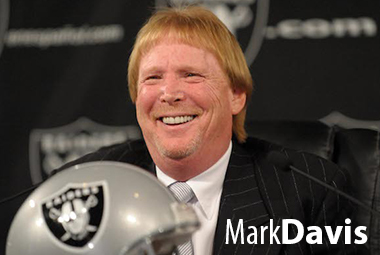
The vote amongst the other owners in the league went 31-1 in favor of Davis’ wishes with only the ownership of the Miami Dolphins dissenting. Colin Cowherd of Fox Sports One suggested that the Dolphins may have dissented due to the fact that the new home of the Silver & Black will share two characteristics with their team: Both franchises will be in areas with great weather in a state with no state income tax.
Personally, I really do not believe that Dolphins’ ownership harbored any delusions that the proposed move to Las Vegas would fail as it obviously made sense for the franchise, and perhaps even for the NFL. I think the Dolphins probably just wanted whatever fringe benefits would come from getting a little bit of a name drop every time the vote was mentioned.
Either way, this move for Oakland comes after several attempts to keep the Raiders in Oakland. Unfortunately, the city of Oakland was simply unprepared to offer a profit-generating business direct tax revenue with which to build an entirely new stadium. That’s not to say that the city didn’t somewhat try to keep the Raiders in town, in fact, they did offer some free land and help with infrastructure. They also promised to eliminate as much red tape as possible from the process.
It should also be mentioned that Las Vegas was not necessarily the first destination of choice for Davis and his team. Initially, the team had considered a return to the Los Angeles area, but the moves of the Saint Louis (now LA) Rams just last year as well as the San Diego Chargers put the kibosh on that. There was some notion that the Chargers and Raiders might even literally, ‘Meet halfway,’ on some kind of joint stadium venture, but those plans also fell by the wayside.
Had the Chargers opted not to move to Los Angeles, then the Raiders could have chosen to join the Rams in that city, but as they say, ‘Two’s company, three’s a crowd,’ and the Raiders had to find a new home.
Initial funding that would have been provided largely by Sheldon Adelson (owner of Sands Corporation-Wynn and Encore being the Vegas properties) was blocked, but Bank of America and the State of Nevada came together on a funding package that was equitable to Raiders ownership.
Of course, one-sided deals usually are.
For the 1.9 billion dollar planned stadium, the Bank of America shall be financing 650 million dollars along with the half billion being contributed by the team/NFL on direct. However, the largest single contributor will be the taxpayers of the State of Nevada coming in with three-quarters of a billion dollars and another pledged 200 million for infrastructure-related things after the initial construction.
The theoretical plan would be the incoming tax revenue stream, particularly by way of sales taxes, would provide sufficient revenue as to make this a profitable investment for the state. However, that is unlikely for a number of reasons. Before we get into the doom and gloom, let’s first focus on the positives that shall come by way of the Raiders coming to town.
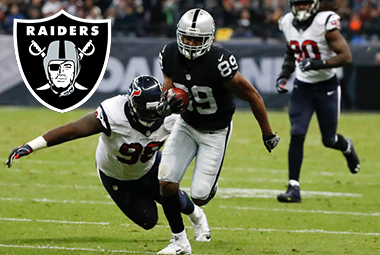
The Winners
1.) The Raiders
The first winner is obviously Mark Davis and the Oakland Raiders organization. They spent the last few years trying to strongarm the City of Oakland into financing a football stadium for them, and other than promising to contribute some land and base infrastructure funding, Oakland remained resolute that they would not repurpose significant taxpayer money towards the project.
Furthermore, the City of Oakland refused to institute any new taxes, even taxes that would largely affect non-residents (hotel taxes) simply because they felt that a profitable company should be able to finance its own establishment. Even though the fans of the City of Oakland do not ultimately win on this deal, they should be pleased that their tax monies are not being devoted to an extremely profitable company.
At the same time, though, the plight of the Oakland Raiders has been silly the last few years. They have spent the time playing in a stadium shared with the Major League Baseball Oakland Athletics. For a not insignificant portion of the football season, the Raiders’ midfield is also a baseball team’s infield. For those of you who may believe that this is not an uncommon arrangement, while that was once true, the Raiders are the only remaining NFL team to share a stadium with an MLB team.
In addition, Oakland-Alameda County Coliseum is the second-smallest NFL venue with the proposed Las Vegas stadium expected to have nearly 10,000 more seats. The Coliseum has also been plighted with serious sewage issues on a few different occasions over the past several years and is considered one of the worst venues in both the NFL and MLB.
In fairness, Oakland kind of jacked around on the Raiders in order to get a ten-year lease extension on the Coliseum out of the Athletics, which has largely been forgotten about. Essentially, the Raiders (at one time) had plans to built on the site of the current Coliseum in a deal that would only be partially financed by the City of Oakland. Instead, Oakland locked the Athletics into a ten-year deal that also required the Athletics to look into building a new stadium within Oakland city limits. The problem there, of course, is that the Athletics would have to build a stadium and complete their move before the Coliseum could be demolished to make way for a new stadium for the Raiders. In other words, while one might rightfully applaud the City of Oakland for refusing to fully finance a new stadium, they’ve not always made deals with the Raiders’ best interests at heart.
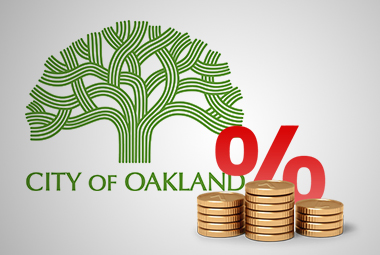
In the meantime, the City of Oakland owns the Coliseum, so having any part of stadium ownership was going to be uncharted territory for the Raiders and owner Mark Davis. While certainly not an unforeseen development, it makes sense that Davis would pursue a deal with a city/state in which he could get substantial public funding. With a contribution of nearly one billion dollars, (before incidental costs, such as police dollars for the extra patrols that will be needed during games and events) the State of Nevada gave it to them on a Silver and Black platter.
For those of you that may think a new stadium would be an incredibly risky investment for the Raiders, it is important to remember that a not insignificant amount of a team’s revenues comes from the NFL’s revenue-sharing program largely bolstered by National TV and advertising rights. For FY 2014, for example.
Every team in the league received 226.4 million of a 7.2 billion National revenue split.
In other words, even with financing a billion dollar stadium on their own, and certainly the Raiders would be a little less extravagant were they not getting just short of a billion in public funds; it is extremely difficult to imagine them running at enough of a loss to fail to be profitable given the amount of revenue they receive just for existing as an NFL team. In the case of the Green Bay Packers, and probably in the case of most other teams, the revenue-sharing agreement is the single-largest source of revenue for an NFL team!
The Raiders are going to be able to cash out on this deal without even gambling. While it is true that they are getting some financing from Bank of America and contributing an almost laughable (compared to the public funds) amount of their own money, this is as sure a thing as profits can get.
2.) The Casinos and Other Businesses:
While it is unlikely that the presence of the Raiders will result in a significant enough boost to tax revenues overall to result in a profitable position for the State of Nevada, that doesn’t mean that the casinos, hotels, restaurants and other businesses will not enjoy the boom that would normally correspond to an NFL team coming to town.
What is favorable about a sport like football, and even hockey that is not the case with something like baseball is that the sports seasons are largely played during a time when Las Vegas is not terribly busy. There will certainly be some exceptions to this rule, particularly in years that the Raiders make the playoffs, (assuming they play at home) but for the most part, business is going to be bolstered at a time when it would normally be a bit slow.
The week before Christmas in town is known as, ‘Dead Week,’ for a reason. There are almost no lines anywhere, the performers at many Vegas shows take a vacation, some of the clubs close and it is the one time of year where major casinos can almost be described as, ‘Kind of quiet.’ Something like a Raiders home game will seriously boost the tourism for that week whether that be coming by way of out-of-towners flying in or people driving down to catch an NFL game. Whether the game in question be on a Saturday or Sunday (the college football regular season is over, at this point) many of these individuals will want to stay at least the night before and possibly even the night of the game.
This could also be a potential boost for other weeks of the year that are generally weak for the Vegas market, such as Thanksgiving week. In fact, the only major event that an NFL home game might conflict with is the PBR World Finals, but that’s assuming that event is still hosted in Vegas by 2020. Even if it is, the NFL will quite possibly schedule the Raiders in such a way that the two events do not conflict with one another.
The fact of the matter is that the presence of the Raiders is going to give several businesses, casinos included, the potential to have decent, if not really strong weekends, where there would otherwise be a lack. That is going to drive up room rates (for individuals who do not enjoy comped rooms) and bring some traffic to the city during an otherwise dead time.
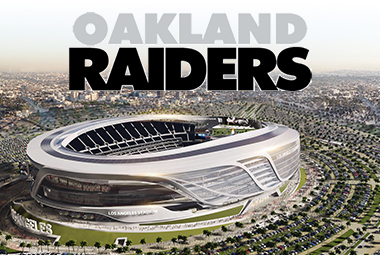
3.) Some Citizens (Both in and Out of State)
The simple fact of the matter is that you do not construct a 1.9 billion dollar stadium without employees and a crapton of them! There is going to be a construction boom in the Las Vegas area as workers perform feverishly to get the stadium built and up to spec in time. In addition to that, other construction projects in the general area will also need workers, so there could be some serious wage-competition in order to draw skilled blue-collar workers.
Anytime there is a major construction/infrastructure undertaking it provides a boom for the working-class segment of society. Even workers in industries such as retail, or in distribution centers experience some wage benefits. Those industries need to keep the workers that they have, and as a result, they often need to increase their wages or improve working conditions in order to ensure their people don’t see if the sand is beiger on the other side of the desert.
Furthermore, as of January of this year, it was reported that the State of Nevada is enjoying a nine-year low for unemployment, so this development will only further contribute to the success that the state is experiencing in that regard.
When the stadium opens, there will also be any number of retail, customer service, security, custodial and other support jobs to benefit stadium operations. Granted, a large number of these will be part-time positions, but something is more than nothing for those who are not presently working, and individuals who are working full-time might be able to score a little extra income working at the stadium one or two days per week.
Even though the retail and concession type jobs at the stadium won’t necessarily pay great, they still represent increased competition in the labor market bringing up the demand for reliable labor. The result of that, of course, could be a slight (if not terribly meaningful) increase in average wages for employees in those sectors.
Additionally, for those who already are working elsewhere, any monies made working part-time at the stadium will often represent disposable income giving people the ability to spend on discretionary goods. Naturally, this comes full circle at some point to benefit the working population as a whole because it acts as an economic mover that creates the need for even more service jobs and competition in that regard.
In the meantime, it can be presumed that many well-to-do people are going to be relocating (and spending money) in the Las Vegas area. Presumably, several of the players for the Raiders will be living in Las Vegas, at least part-time, and they are going to go out and spend money further providing a benefit to the businesses in town. Furthermore, they might also act as a source of jobs, in a sense, when they hire people to tend to their properties, hire drivers, private security, personal chefs, cleaners or any other possible number of things.
Whether or not it is a positive for the State of Nevada on the whole (in terms of Return-On-Investment, very doubtful) remains to be seen, but there can be almost no question that this development will bring plenty of additional cash into the Las Vegas area. The result of that is going to be the need for more low-level employees in many occupational categories that will foster competition driving up wages and encouraging more people to move into the area.
There will also be job improvements in areas that one does not typically consider when one hears the words, ‘Sports team.’ It should be remembered that sports medicine will become a bigger industry in town than it already is. Furthermore, increased police and EMT presence is going to be necessary during the games, and perhaps, during other events to ensure the safety of the public. During events at the stadium, even non-football events, there should be a boost in the local cab industry, which would also include independent Lyft and Uber drivers.
No matter how you look at it, this development represents a way for plenty of current citizens and soon-to-be citizens of the greater Las Vegas area to make some money and improve their lot in life. While it may not be profitable for the state, it can at least be argued that it contributes to the public good in some way.
4.) Property Owners:
Landlords and property owners should also see a positive effect on the value of their properties as a result of this development. The simple fact of the matter is that there is going to be a sudden influx of new money into Vegas and the people who have that money are going to need places to live.
Of course, this doesn’t just include residential. The individuals who work in relation to the Raiders franchise, but not directly for the Raiders franchise, are going to want to lease office space or space to do whatever it is they do for the team. Furthermore, many of the players and other high-ranking people in the franchise are going to seek out CPA’s and the like which will cause the real estate within several miles of the stadium to increase in value, as well.
While there are many individuals and businesses who will ultimately benefit from the presence of the Raiders in Las Vegas, I must reiterate that this will likely not be profitable for the state overall. Additionally, there are also going to be a few individuals who lose out in potential costs and do not enjoy any benefit as a result of the Raiders’ presence.

Who Definitely Loses?
The biggest loser in all of this is the individual who lives anywhere in Nevada outside of the scope of the direct Las Vegas market who also happens to not care at all about the NFL. When public monies are spent on something, regardless of what it is, the result is that there is a different area in which those monies were not spent. In other words, there might have been some improvements (current or future) to public schools, the health care system, public infrastructure, airports or state highways that may have to be put off due to the significant investment in bringing the Silver & Black to the Silver State.
In the meantime, there is no guarantee that the Las Vegas Raiders will remain as such forever. The Raiders started out in Oakland, then went to Los Angeles and back to Oakland again. Similarly, the current Los Angeles Rams were just that before they went to Saint Louis and became that again after they returned.
The point of the matter is that there is not going to be any great degree of loyalty when it comes to an NFL franchise’s ownership regardless of what is given to them now. Should a potentially more profitable deal come up, the team will ask the city/state, “What have you done for me lately and what are you going to do for me?” If they don’t like the answers to those two questions, and they can find a better deal somewhere else, then somewhere else is exactly where they will go. Make no mistake, if the Raiders had been offered a 100% public financed 1.9 billion dollar stadium in Helena, Montana, then they would soon be the Montana Raiders.
At the same time, it’s simply good business to take the best deal that is offered, so one absolutely cannot blame Mark Davis for heading to sandier pastures. If Mark Davis were a mere executive, rather than an owner, he should rightfully be ousted had he not taken this deal. It’s the sweetheart deal of a lifetime, and the Davis clan has a lifetime (and then some) worth of experience in landing those.
Once again, though, it begs restatement that money spent on one thing cannot be spent on something else. For several reasons, the State of Nevada will likely not get all of its money back.
1.) There Is No State Income Tax
In the event that the State of Nevada continues not to have a state income tax, other than incremental sales tax revenues, the fact that several jobs associated with the stadium will be created is not going to result in a direct and guaranteed tax revenue stream. Granted, sales tax receipts might increase as a result of more individuals working in the area, but all of that occurs on a, “All else equal,” basis.
It is also important to remember that Las Vegas is the ultimate discretionary income city, which is to say that the vast majority of the town’s incoming revenue is from discretionary spending. As we saw with the gambling and visitor numbers in the years following the, ‘Great Recession,’ the Las Vegas market is perhaps one of the most susceptible to a greater economic downturn.
It may be true that, if such a downturn were to happen, the presence of the stadium will at least help minimally keep employment number something closer to stable, but in order to make money off of sales tax revenues, actual sales have to be taking place.
In that sense, this is a huge gamble for Nevada who is banking on strong, or at least consistent, economic conditions for the country as a whole in order to make this thing work. That failing, Nevada is essentially subsidizing an industry that they have no business subsidizing with monies that they would basically need for the future. While there is a certain local pride and novelty in having an NFL team, do you really want to have any risk whatsoever of it coming at the expense of the welfare of your citizens?
Either way, bringing multi-millionaires to town and having a state income tax apply to them would certainly be one means of extracting some potentially positive revenues on this deal, but again, the state has no such income tax.
When it comes to sales tax revenue, Jeffrey Dorfman of Forbes gives us an example that would lead to sales tax revenues of roughly $300 per person.
However, there are a number of reasons that’s not going to happen. This brings us to reason:
2.) The Number of Visitors Will Increase, but Not Necessarily By A Lot
Here’s a quick question: What do you do when you have originally scheduled Christmas dinner for 3:00p.m., but you find out that a member of your family you really want to be there cannot make it until four?
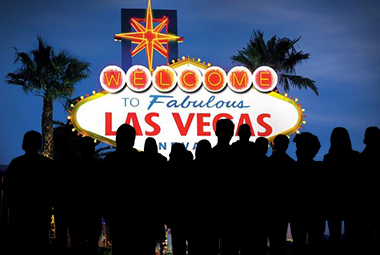
You reschedule it.
It is for that reason that the Raiders coming to town might represent an increase in total visitors to the city, particularly during dead parts of the year, but to a large extent, it will merely redistribute some of the visitors that Vegas already has.
Think about it: If I’m a person that goes to Vegas once or twice a year, and I am also a fan of the Denver Broncos, Kansas City Chiefs or Los Angeles Chargers, am I going to add another trek out to Vegas to my calendar to see my team? The answer is: Probably not.
The vast majority of people have a finite amount of money that can be spent on discretionary things, so what is going to happen with many people when the Raiders have a home game is that they will simply plan a visit to LV during such time as the game is scheduled. Granted, there will be those that go to Sin City just to see a game, or at least for primarily that reason (that would not have gone otherwise) but the majority of the away crowd will be comprised of people who simply moved their Vegas trip on the calendar.
Furthermore, the spending that they do while they are in Vegas might not even necessarily increase in amount. Generally speaking, most individuals or families have certain budget constraints on whatever number of vacations they take in a year and like staying within those parameters. The result, of course, is many people are going to be spending money on/at the games that they would have been spending in Las Vegas anyway. Effectively, the same money would be being used, it would just be going to something else.
The $300 in tax revenue in the Forbes article was also referring to the Super Bowl and assuming that $2,000 was spent on hotels, which doesn’t consider:
3.) There is Only a Limited, ‘Captive Market,’ Element
The reason why NFL games are such a huge revenue source for the businesses in the cities that have an NFL franchise is not only because of the home crowd coming in, (which is something of a question mark in Las Vegas) but also because the areas in which most NFL teams play are built to have something of a supply-demand shortage for out-of-town people coming in.
For example, there are approximately 4,300 hotel rooms in Greater Green Bay, home of the Green Bay Packers whereas their stadium, Lambeau Field, seats 80,750. In other words, there can often be presumed to be a ton more fans from out of town than there are available hotel rooms. This fact means that demand tremendously exceeds supply and causes something of a, ‘Captive market,’ meaning that anyone who wants to stay almost has to pay whatever the hotelier asks.
In the hotels I worked at, I saw this on a smaller scale whether it be for natural gas drilling, an annual music festival or in Kansas City when Nascar came to town. You could take a hotel that had an average daily rate (as the North Kansas City hotel) of around fifty bucks, and was probably worth about that a night, but for that one glorious weekend we asked $200/night with a minimum two night stay and got it.
Did the guests gripe about the rooms at that price? Absolutely. If they don’t like the price, though, the alternative is to either sleep in their cars or go to a hotel priced where we would normally be...that should only be a drive of 100 miles, or so, to get to the venue.
The difference with Las Vegas is that it is fundamentally designed to be a tourist city. The greater Las Vegas area has over 150,000 total hotel rooms according to Reference.com, which dwarves the expected 65,000 seating capacity of the new stadium. Granted, the influx of people coming into town to see the games will drive up hotel demand a little bit, but probably not as much as a small market where stadium seating outnumbers total room count nearly 19:1.
Furthermore, restaurants around the stadium are not going to suddenly be premium restaurants at premium prices, because they already exist! They are in the casinos on the Las Vegas Strip and will not be changing anytime soon. Granted, Sunday buffets might go up a little bit on game day, but in terms of Las Vegas on game day compared to Las Vegas on a, ‘Normal day,’ you’re just not going to see the sort of disparity that can be found in other NFL cities.
That doesn’t mean that new money will not be brought in and that business will not improve for the city around game time, it just means that it will not do so to a great enough extent to justify unprecedented public funding of a project that, in the majority, benefits a single private business.
4.) The Home Crowd Doesn’t Necessarily Generate a Ton:
The fact of the matter is that going to an NFL game, much like anything else, is not something that most people are going to do with money that would otherwise be earmarked for the purpose of bill paying, savings or investment. For the most part, the monies that are going to be used for the purpose of taking in an NFL game have already been budgeted as discretionary funds, anyway.
While that would not represent a huge problem in a limited market such as Green Bay, a city in which the residents might take their discretionary funds elsewhere if they did not have the Packers, the simple fact is that there is no shortage of things to do in Las Vegas. That doesn’t make the spending in Las Vegas a bad thing, per se, it just means that the residents of the general area will be spending discretionary money in the area that they would already be spending anyway. In other words, that boosts sales tax receipts (on those specific people) by exactly nothing because they would already be spending there.
Effectively, Las Vegas is probably going to want more Away fans than Home fans as a city, because the Away fans are more likely to be bringing in money that, to a limited extent, would not already be coming into the State of Nevada. However, once again, that is only true to a limited extent because visitors who would be going to Las Vegas anyway will simply reschedule their usual trip to correspond with when the Raiders play their preferred team.
5.) It Doesn’t Stop With the 950 Million:
We mentioned the potential job benefits for individuals who have to provide public safety related services for the games and other events at the stadium. While those things benefit the individuals who are employed doing them, they all represent additional costs for the city and the state that are unlikely to be recouped by way of sales tax revenues.
Furthermore, these events will also add additional traffic to the roadways and increase the wear and tear on state highways and local roads. This type of congestion will result in more traffic accidents which, of course, require the needs for even greater police presence in the city to deal with that.
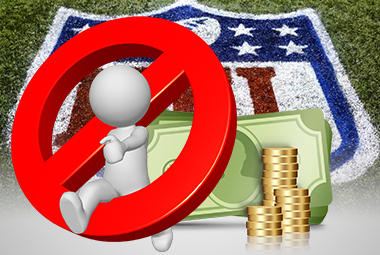
The simple fact of the matter is that this 950 million is nothing more than guaranteed front money, but the total sum that the city and state end up pumping into this project on the indirect remains to be seen.
6.) Vegas is Different:
When visitors come into any other NFL town to see a game there is going to be a boost to the local economy on that day in all segments. That includes hospitality, retail, service and restaurant industries. It is not a question of, ‘If,’ but rather a question of, ‘How much?’
That comes by way of the fact that all of these amenities come at a cost to the customers. If you have an economy hotel in Green Bay it only makes money by way of its operations as an economy hotel. The result of that is they are not going to comp rooms to individuals attending a game at Lambeau Field...they have absolutely no reason to do that.
Similarly, the restaurants in the general area are going to be slammed wall-to-wall, as well as the bars, and none of those entities are going to be comping food and beverage. Food and beverage is the only means that those businesses have of making money.
It is for that reason that sales tax receipts for an NFL Sunday (or Thursday, Saturday or Monday) can be compared to a non-NFL day for the day of the game as well as the day before. This is also true of any pertinent occupancy tax. When making this comparison, a jurisdiction can very easily point to the NFL weekend and say, “Look what a difference that made!”
You’re not going to be able to do that in Las Vegas to as great an extent simply because the attendees of the game may have otherwise visited Vegas at a different time. Furthermore, the attendees of the game may simply have been in Vegas anyway during that time and are attending the game for, ‘Something to do,’ using money that, much like the locals, would have been spent elsewhere in the city either way.
It is just one of the several reasons that have been mentioned that the Raiders coming to town will certainly bring some new money in, but not as much as they would a different NFL city, and certainly probably not enough to justify a 950 million dollar public expense.
Sales tax receipts on comped rooms and comped food are going to be the same as they would be as if the rooms were not occupied and the food not eaten: $0. Sales tax receipts on comped beverages, similarly: $0. While there will be some tax gains that come about as a result of the presence of the team, they will be tough to track (other than direct revenues) and potentially negligible compared to the public cost.
A Bad Bet?
Simply put, as excited as I am to attend an NFL game on a future trip to Vegas, if the goal of this 950 million dollar...and let’s call it what it is PUBLIC DONATION to an already very wealthy man...is intended to generate a positive RoI, then that is very unlikely to happen.
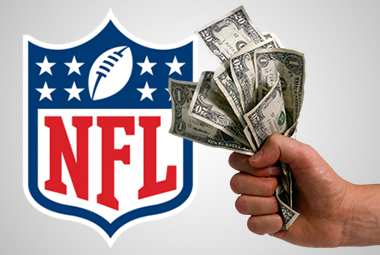
The City of Las Vegas, Clark County, Nevada and the State of Nevada as a whole would have done better to devote that money to something that would more directly result in the public good as well as more equally benefit all of the residents of the state as opposed to just those who live around Las Vegas. Granted, Las Vegas is the mecca of the state and the most important locale when it comes to jobs and sales tax receipts, but it doesn’t mean that you should ignore the other denizens of the state and devote public funds in a manner that does not5 benefit residents as equally as possible.
The fact of the matter is that Vegas would have been fine with or without the Raiders coming to town, but if there was a way to bring them in that would have resulted in either no public investment, or a very minimal one, then I would have supported that wholeheartedly.
As it stands, this is the equivalent of calling Heads when getting paid 1-FOR-2 with nearly a billion dollars of public funds if the coin lands your way.
Conclusion
The State of Nevada has decided upon winners and losers when determining where nearly a billion dollars in public money would go. The winner of the biggest jackpot is Mark Davis, who was already worth half a billion dollars to begin with.
In the meantime, this, ‘Investment,’ will not help some residents of the State of Nevada at all and they should feel hoodwinked by this development. Even if it comes by way of some new hotel tax or fee, couldn’t something like that have been instituted anyway but used in a manner that more directly goes to the public good?
Comments
I applaud City of Oakland and declare them to be the winner in all of this.
Let us not forget when certain Los Angeles related sporting events came to Vegas and dealers soon realized they were on their own as casino security was not going to intervene and risk mjor gang fights or major headlines. Now its going to be Oakland instead of Los Angeles?
Stadiums provide union construction jobs but those soon end. ALL the so-called 'stadium operation jobs' of cooking, cleaning, souvenir selling, etc. get bid out to corporations that supply the workers. The souvenirs probably come from China or Los Angeles anyway. Oh sure, some corporate fronts will be set up but what are you going to do: have a hamburger stand in the stadium that is only open during events? Sell water bottles to those sitting in traffic for parking?
Visitor redistribution is key. Casinos compete during dead week but know that the real money is from data mining their own Players Club lists to draw people from home that week, not to draw them from some other casino with across the board bargains.
Stadiums are rarely profitable for cities and towns. Smart casinos will be the local restaurants that offer Football Freedom lunch specials: come on Gals, have lunch here, the TV will be OFF.
Why is Vegas importing traffic jams? Well, that darned teachers union keeps trying to get a state lottery passed to siphon off revenue and at least this will keep the union at bay for awhile.
It's definitely good on Oakland not to shove out a bunch of public funds to a private business.
I don't know how many people from Oakland will be that interested in seeing the Raiders, but, 'Hardcore,' NFL fans could present a unique security situation for sure.
It's true that corporations run the concessions at these events, but it still takes individual people to flip the burgers and run the cash registers. Unless unemployment is at 0%, any job is a good job.
Yeah, burger flippers at the stadium have to live somewhere but usuallly its not locally. The food service personnel are all staffers sent in for the gig or for the season or something. Stadium employment is 'local' only in the newspapers and political speeches.
Vegas has expanded its non-gaming economic base and its probably been a mistake to do so. All those gourmet-types and drunken "clubbies" running around taking parking places from gamblers. Terrible thing to do. Now, even the gamblers will be going to some dumb game instead of betting on it in a sports book.
I thought the tax element was coming from an increase in hotel tax income. Therefore it is in the majority not coming from Nevada tax payers but visitors from out of state. If the state wanted to spend money on better infrastructure or health then it could have raised the hotel tax rate at any time but chose not to do so. Therefore no money has been taken from the general taxation pool and diverted to the stadium. As a visitor to Vegas three times a year with no interest in attending a NFL game I just add this extra tax element to all the other ways that my trips become ever more expensive to satisfy corporate greed e.g. resort fees and parking charges. Despite increasing visitation numbers I believe there must be a tipping point which will kick in and then Vegas will reap what is has sown.
BBCPJC,
It is, but some people that live in the state also stay in Vegas, and no matter how you cut it, the funds would be better spent elsewhere if you must have a tax at all.



